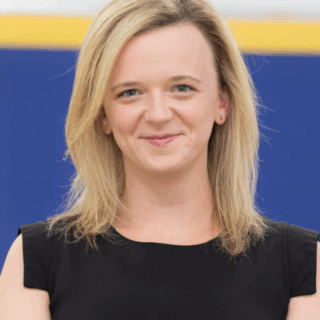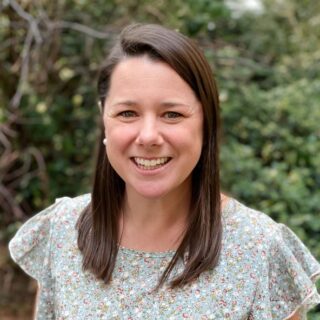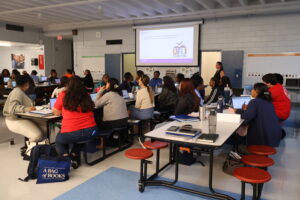 At Uncommon Schools, we are always looking for ways to serve our students better by innovating and building upon best practices, and this year is no exception. In August, we launched the pilot of a new phonics program at many of our schools. Developed by the University of Florida Literacy Institute, UFLI (pronounced “u-fly”) Foundations is an explicit and systematic phonics program designed to build foundational literacy skills. Over 300 K-2 teachers are using it for the phonics portion of the literacy block this fall, with upper elementary teachers using it for intervention. In select regions, fifth and sixth grade teachers are using data to identify which students would benefit from additional UFLI Foundations coaching.
At Uncommon Schools, we are always looking for ways to serve our students better by innovating and building upon best practices, and this year is no exception. In August, we launched the pilot of a new phonics program at many of our schools. Developed by the University of Florida Literacy Institute, UFLI (pronounced “u-fly”) Foundations is an explicit and systematic phonics program designed to build foundational literacy skills. Over 300 K-2 teachers are using it for the phonics portion of the literacy block this fall, with upper elementary teachers using it for intervention. In select regions, fifth and sixth grade teachers are using data to identify which students would benefit from additional UFLI Foundations coaching.
The adoption of UFLI Foundations is the most recent example of Uncommon’s long-standing commitment to the science of reading. Since 2004, Uncommon has relied on evidence-based practices in reading research to structure and refine its 150-minute elementary literacy block. These efforts have paid off: for example, on average, Uncommon’s Newark schools have consistently met or exceeded the performance of non-economically disadvantaged students in New Jersey for every year of testing since 2013-14.*
Despite consistently strong reading results, elementary teachers across Uncommon noticed lingering comprehension gaps as students read and processed texts, prompting a network-wide analysis of how students tackled texts.
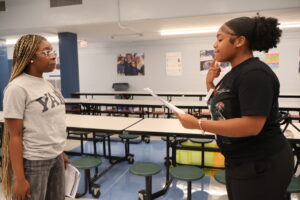
A Targeted Solution to Specific Reading Challenges
A close review revealed that the problem wasn’t the content of passages, but rather, students struggled to read fluently and decode words. With most of their effort spent at word-level understanding, they had trouble keeping the full passage in mind. A program that strengthened phonics skills, oral reading fluency, and irregular word recognition would eliminate this barrier. UFLI Foundations does all three.
Watch this clip of Rachel Decima using UFLI Foundations to introduce the “silent e” spelling pattern to kindergartners. Notice the many opportunities students have to practice and discuss the vowel change.
UFLI Foundations excels at the structured daily practice seen in the clip above. The program’s comprehensiveness, in addition to a targeted focus on phonemic awareness and phonics, makes it a fitting addition to Uncommon’s robust literacy block. Students receive extensive regular exposure to grapheme-phoneme correspondences, word decoding, spelling, irregular word instruction, and reading fluency.
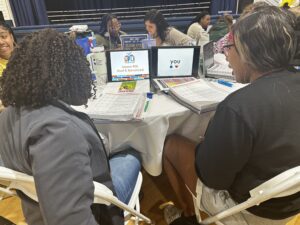
Setting the Course With Teachers
In August, teachers at 11 of Uncommon’s 23 elementary schools were trained in UFLI Foundations. Participating core and SPED teachers learned the program’s framework and how to incorporate it into the literacy block. Then they practiced the eight steps of each lesson, using the manual and materials to build muscle memory.
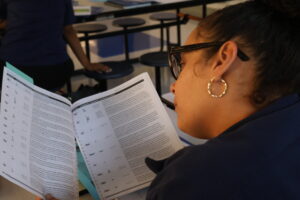
Kelly Gardener, Principal at Rochester Prep SJCES, has seen summer practice translate into a successful school launch, “Teachers are just as excited as the students and are having so much fun with the implementation. In just a day, we have already seen scholars using newly taught methods to sound out unknown words.”
Vailsburg Elementary Director of Curriculum and Instruction Alex Madtya calls the program a “dream come true,” noting that “lessons are strategically scoped so that students are exposed to all the nuances of being good decoders in a developmentally strategic way. They’re also multisensory, which allows teachers to reach the range of learners in their class during every lesson.” Ongoing yearlong professional development will help teachers sharpen and improve program facilitation in real time.
School leaders are learning alongside them: each month, principals will attend professional development sessions to support UFLI coaching, ensuring that educators and leaders are aligned on key knowledge and skills.
Measuring the Impact
Uncommon’s literacy leaders plan to monitor the pilot’s implementation throughout the school year. Regular rounds of student achievement data will be analyzed to measure learning and growth, and these results will be compared to those of previous curriculum. While we can’t yet speak to the program’s impact, we are confident that with a high-quality curriculum, along with our previous tried and true best practices and shared priorities among teachers, coaches, and school leaders, Uncommon’s newest and youngest students are well-prepared to crack the code of reading.
*2013-14 is the earliest year Uncommon has State Test data for Uncommon Newark ELA Performance. *Uncommon does not have State Test data for 2019-20 and 2020-21 because of the coronavirus pandemic.


